This post may contain affiliate links, which means I’ll receive a commission if you purchase through my links, at no extra cost to you. Please read full disclosure here.
In Korean, topic marking particles play a key role in conversations by indicating what the speaker is focusing on or discussing. These particles are attached after nouns and help the listener understand the main topic of the sentence.
Topic Marking Particles 은 and 는
- 은 (eun) is used when the noun ends in a consonant.
- 는 (neun) is used when the noun ends in a vowel.
You can think of 은 and 는 as translating to “as for” or “about” in English. For example:
- “저는 학생이에요.” (jeo-neun haksaeng-i-e-yo) = “As for me, I am a student.”
은 examples (for nouns ending in a consonant):
- 가방 + 은 (gabang + eun) = 가방은
- 책 + 은 (chaek + eun) = 책은
- 집 + 은 (jip + eun) = 집은
- 음식 + 은 (eumsik + eun) = 음식은
- 사람 + 은 (saram + eun) = 사람은
- 물 + 은 (mul + eun) = 물은
- 일 + 은 (il + eun) = 일은
- 사진 + 은 (sajin + eun) = 사진은
- 질문 + 은 (jilmun + eun) = 질문은
- 선생님 + 은 (seonsaengnim + eun) = 선생님은
는 examples (for nouns ending in a vowel):
- 나 + 는 (na + neun) = 나는
- 친구 + 는 (chingu + neun) = 친구는
- 학교 + 는 (hakgyo + neun) = 학교는
- 날씨 + 는 (nalssi + neun) = 날씨는
- 영화 + 는 (yeonghwa + neun) = 영화는
- 문제 + 는 (munje + neun) = 문제는
- 고양이 + 는 (goyangi + neun) = 고양이는
- 강아지 + 는 (gangaji + neun) = 강아지는
- 시간 + 는 (sigan + neun) = 시간는
- 커피 + 는 (keopi + neun) = 커피는
Usage Examples:
- 음식은 좋아해요. (eumsik-eun joahae-yo) = I like food.
- 저는 학생이에요. (jeo-neun haksaeng-i-e-yo) = I am a student.
In Korean, the noun marked by 은 (eun) or 는 (neun) is usually the topic of the sentence, but it’s not always the subject of the sentence. The topic is what the sentence is about or what you’re focusing on. The subject is the doer of the verb.









